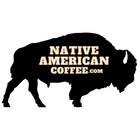The Legend Lives On . . . From the Birthplace of Coffee
Legend has it that in 850 A.D. a goat herder named Kaldi discovered – in the African country of Ethiopia – what we now know as the modern day coffee plant.
Curious, Kaldi wanted to know what could be responsible for the "queer antics of his flock." Fearing his sheep possessed, Kaldi paid close observation from high on the mountain and watched as his herd nibbled red berries from the branch of a strange tree.
When he sampled the berries himself, he felt a surge of exhilaration and rushed to tell the local Imam. That night the two shared a concoction made of the berries, pranced around, and generally got pretty tanked on caffeine.
When they finally dozed off, legend has it that Mohammed appeared to the Imam and said the berries enhanced wakefulness – and wakefulness promoted prayer. Prayer, counseled Mohammed, was better than sleep.
Sooner than you can say percolate, the Imam and his monastery became famous throughout Arabia for the spirited praying of its coffee-drinking brethren. Soon others in the old world were clamoring for the newly discovered bean.
More Coffee Lore . . .
The first drink made from the coffee tree was purportedly a wine drink made from coffee cherries, honey, and water.
The word "coffee" has its origins in an old Arabic word "Qahwah", meaning wine.
The term Qahwah, however, was eventually discarded and it fell out of favor with the spread of Islam and its sanctions against the consumption of alcohol.
Although coffee is indigenous to the Kaffa (coffee) region of Ethiopia, it was taken to Yemen by the Arabs and cultivated in the 6th century.
"Coffee", as we know the term today, received its name from the Arabian port of Al Mukkah (Mocca) on the Red Sea.
Truly Fine Ethiopian Coffees
One of the many fine coffees is Ethiopian Moka "Stag" which has a distinct acidity and it yields an intensely aromatic coffee that is rich with subtle undertones.
Ethiopian Harrar Longberry is the highest grown Ethiopian coffee and it possesses an exotic flavor with a rather light body, pleasing earthy notes, and a distinctive aromatic character.
Another fine coffee is Ethiopian Sidamo, a Mocha style bean with a piquant aroma and a winey pungency. Much of the crop is still harvested in the traditional manner from wild trees growing in the high plateaus over 5,000 feet.
The cream of the crop is Ethiopian Yirgacheffe which is virtually unknown by most people, yet still considered by many to be the finest Ethiopian coffee. This intense feeling coffee enhances the palate with its very distinctive floral bouquet, rich body, a pleasingly fragrant aroma, with a smooth mellowness that's unique unto itself.
The Cream of the Ethiopian Crop
Like other premium quality gourmet coffees, Ethiopian Yirgacheffe coffee beans are picked by hand. Yes, it's a tedious process, taking numerous visits per tree each year, all because coffee cherries do not all ripen at the same time.
A single branch of a coffee tree might very well bear blossoms, green fruit, and ripe cherries simultaneously.
An experienced "picker" can pick about 200 pounds of ripe coffee cherries in one day. Although 200 pounds may seem like a significant amount, it will yield about 50 pounds of green beans after processing.
Ethiopian Yirgacheffe is a washed coffee in which the coffee beans, after having the outer layers of skin and fruity pulp removed, are soaked up to 72 hours in fermentation tanks. Beans treated with this "wet" method will generally have a higher acidity, a cleaner winey or floral flavor, and more of a full body than the beans processed by the dry method.
Always Premium Quality – Never Less
To savor the rich aroma and full gourmet taste of Ethiopian Yirgacheffe, it is suggested that you purchase your coffee from a reputable distributor.
Of course, I also recommend you purchase only the premium gourmet quality Ethiopian Yirgacheffe coffee beans not the lower grades used for commercial blending.
Listen Up – There's a BIG Difference
Prior to purchasing coffee by mail order, I used to purchase Ethiopian Yirgacheffe only in a few local specialty coffee stores. Especially since Yirgacheffe it isn't yet well known. Still, I occasionally obtained stale beans.
Under no circumstance would I ever think of purchasing Yirgacheffe (or any other "gourmet" coffee) in the "gourmet" section of a supermarket. After all, the beans sit there in plastic bins for an indefinite period of time. C'mon, how fresh can they really be? Exposed to light, air, humidity, and so on.
Now, I purchase all of my coffee from Coffee.org. Why? I always know I'll get fresh "gourmet" coffee at a very modest price – especially compared to local specialty coffee houses.
Hey, Let's Compare and See What Happens
To determine the quality difference of the Ethiopian Yirgacheffe that I obtained from Coffee.org, I decided to do a test and compare. (Yes, there are quality differences between Yirgacheffes – just like there are quality differences between Yugo's and Rolls Royce's).
Always Premium Quality – Never Less
So, I also purchased a pound of Yirgacheffe from the "gourmet section" of one of the more notable chain stores. Unfortunately, I consumed that lackluster "supermarket gourmet" brew for about a week.
Then, the Yirgacheffe arrived from Coffee.org. I was ready. On a fine Sunday morning I ground their fresh Yirgacheffe beans, placed them in my plunger pot, boiled the water, and lo and behold a few minutes later I inhaled that fresh, distinctive, fragrant, earthy aroma. And, of course, I relished the experience as I slowly drained my coffee cup. Ah yes, what a difference.
I encourage you to try the Ethiopian Yirgacheffe from Coffee.org. They sell a premium gourmet quality Yirgacheffe at a very competitive price.
What I need now is another cup of coffee!
Cheerio,
John DeBartolo - New York's Coffee Meister




